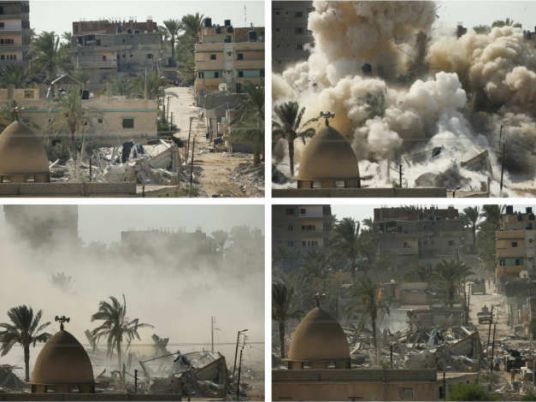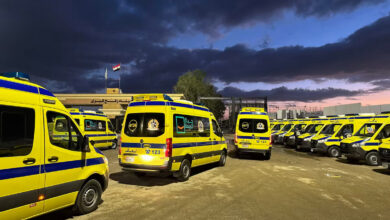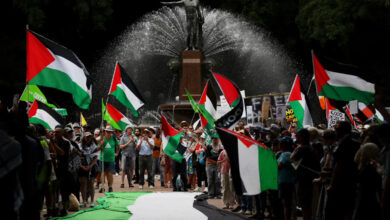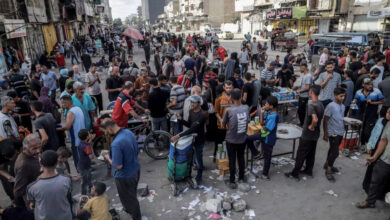
At 2:30pm and after driving four kilometers in Arish, Al-Masry Al-Youm team's driver reaches Al-Risa checkpoint on the eastern border of the city. He sees cars queuing and he hears shots fired from automatic weapons by snipers stationed on rooftops of the surrounding buildings.
He sits straight in the car, fearing that the way he sits might aggravate security officers, for he knows that in Sinai you should stop your car at a distance of 200 meters from a checkpoint, then proceed at 20 kilometers per hour. He also knows that you should never turn the engine or the cabin lights off and that you should always have your ID card and driver’s license or you may find yourself under a hail of bullets that would make you and your car impossible to identify later.
He finally crosses the checkpoint and arrives at Al-Sakaska village on the highway, close to the Green Valley area. He stops at a big hole in the ground that is six meters deep and four meters wide. Around it there is debris from a bomb blast.
“An ambulance was targeted here,” he said. “This was the third time since the armed attacks began in Sinai, but no one was wounded.”
Then he drives another six kilometers to the border town of Rafah. Again, he stops at the Al-Kharouba checkpoint that was attacked, leaving three dead and 11 others wounded. But the checkpoint was closed and so he had to take a detour to Rafah.
After two and a half hours on the road that should not take no more than an hour, he arrives in Rafah 15 minutes before the start of the curfew.
Just 500 meters from the borderline separating the Gaza Strip and Rafah, we see the family of Haj Abu Mohamed and six other families searching for their belongings in the ruins of their houses, which were blown up. They had to move to an old brick factory with no roof to protect them from the rain.
Om Fadya saw the demolition of her home with her own eyes,” Abu Mohamed said. “The poor woman couldn’t take it.”
“The women here try to arrange the wet furniture so as to make the place as livable as possible,” said Om Nasr while she was covering the electrical appliances with plastic.
Om Shetewy looks at the the wall clock and yells at the girls playing in front of the entrance to come in because the curfew has started.
Om Mahmoud makes salad and eggs for the hungry children. “This is all we have until we can go out and buy food tomorrow at 7am when the curfew is over,” she said.
They sit close to each other and light a fire, while some of the boys singing to the rhythm of the surrounding gunshots. Then they go to sleep.
The next day they sit outside the factory to eat. Then comes a patrol and the officer asks who they are. They tell him that they have been displaced when their homes were demolished and that they have no other place to go.
The officer reassures them that he is here to protect them and gives them his number if they needed any help. Before he leaves, a man asks him if the women and the children could go stay at their relatives whose houses were not demolished, which he agreed to.
Edited translation from Al-Masry Al-Youm




